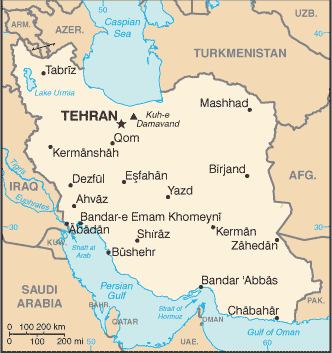Iran claimed on Thursday that the most recent assassination of one of their nuclear scientists was committed with information obtained from the United Nations.
 Iran’s deputy U.N. ambassador Eshagh Al Habib said there was a “high suspicion that … terrorist circles used the intelligence obtained from United Nations bodies, including the sanctions list of the Security Council and interviews carried out by IAEA with our nuclear scientists, to identify and carry out their malicious acts.”
Iran’s deputy U.N. ambassador Eshagh Al Habib said there was a “high suspicion that … terrorist circles used the intelligence obtained from United Nations bodies, including the sanctions list of the Security Council and interviews carried out by IAEA with our nuclear scientists, to identify and carry out their malicious acts.”
The Iranian nuclear scientist, 32-year old Mostafa Ahmadi-Roshan, was killed last week by a magnetic bomb placed on his car by two unidentified assailants in northern Tehran. The attack, the fifth attack of its kind in two years, is widely believed to have been the work of some combination of U.S. and/or Israeli covert operations.
Ahmadi-Roshan recently met with IAEA inspectors, Al Habib said, “a fact that indicates that these U.N. agencies may have played a role in leaking information on Iran’s nuclear facilities and scientist.”
The Security Council has imposed four rounds of sanctions on Iran. Its list of sanctioned individuals does not include Ahmadi-Roshan, but does name another scientist, Fereydoun Abbasi-Davani, who was wounded in a Tehran car bomb blast in November 2010.


